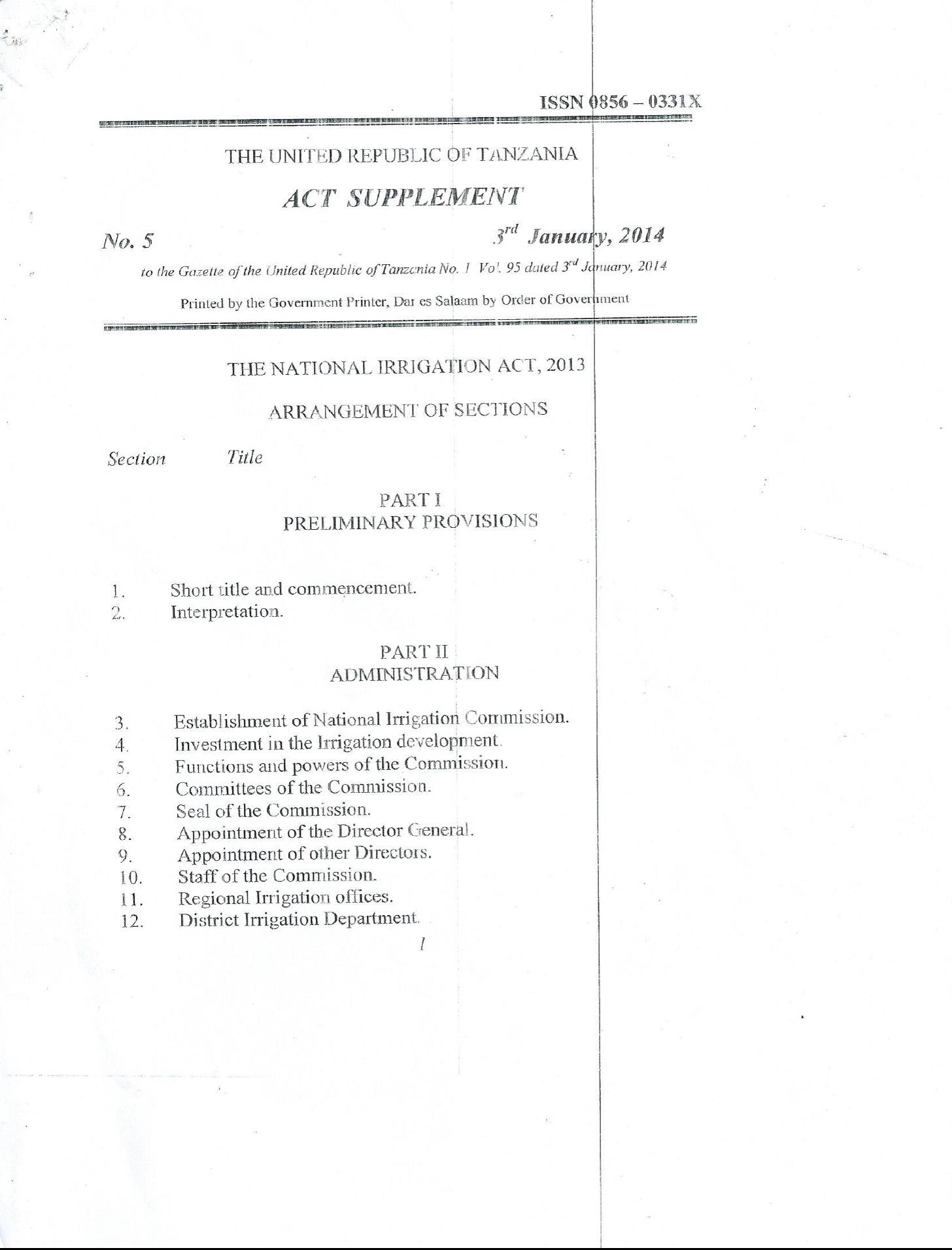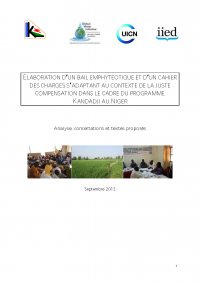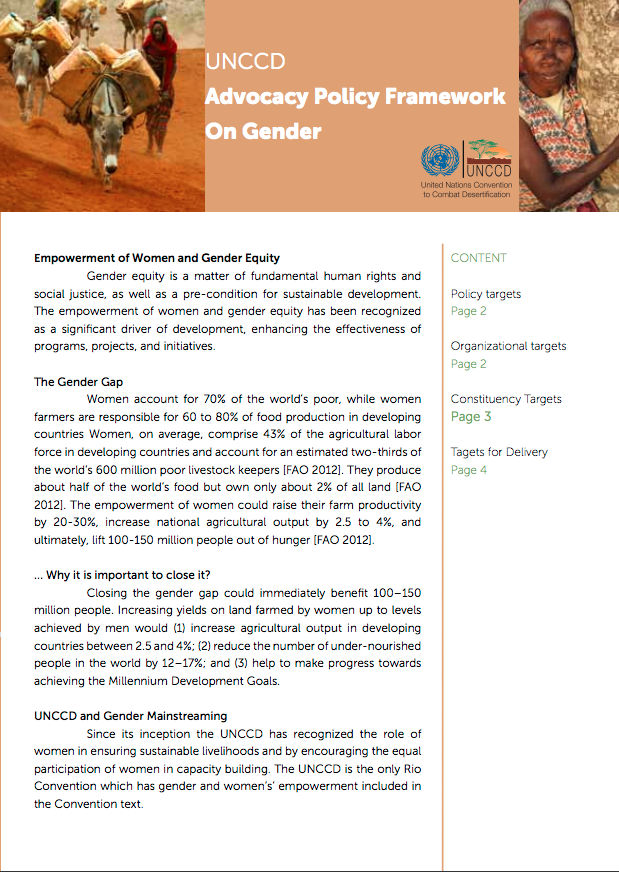National Irrigation Act, 2013 (No. 5 of 2013).
This Act makes provision with respect to the management, use and maintenance of irrigation systems. It establishes the National Irrigation Commission and defines its functions and powers. The Commission is established as a body corporate and shall be an independent department of the Government under the Ministry responsible for irrigation. The Commission shall be responsible for coordination, promotional and regulatory functions in the development of the irrigation sector.







